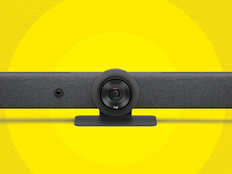Survey: What Gen Z Thinks About Ed Tech in College
Generation Z has spoken, and they want solid mobile-learning plans in the colleges of tomorrow.
A survey of the collegiate educational-technology expectations of 1.300 middle and high school students from 49 states was captured by Barnes and Noble. The survey, Getting to Know Gen Z, includes feedback on the students’ expectations for higher education.
"These initial insights are a springboard for colleges and universities to begin understanding the mindset of Gen Z as they prepare for their future, focusing specifically on their aspirations, college expectations and use of educational technology for their academic journey ahead," states the survey's introduction.
Like the millennials before them, Generation Z grew up as digital natives, with devices a fixture in the learning experience. According to the survey results, these students want "engaging, interactive learning experiences" and want to be "empowered to make their own decisions.” In addition, the students "expect technology to play an instrumental role in their educational experience."
These findings point to the impact of bring-your-own-device and one-to-one device initiatives that have dominated K—12 districts in recent years. These students are accustomed to leveraging technology in their everyday lessons and expect these technologies to allow for learning in individualized ways at a pace that’s suited to the student.
But to cater to the digital appetites of tomorrow’s higher education learners, technology in education will need to play a bit of catch-up, states the New Media Consortium’s 2015 Course Apps report. According to NMC’s analysts, digital-textbook adoption was one of the leading trends helping to reinvent how higher education students learn. But publishers have not captured the innovations happening elsewhere in the digital marketplace.
Digital tools don’t currently leverage the social, interactive and immersive capabilities inherent in the connected devices on which these materials are experienced.
“There is a need for user-friendly tools that empower faculty to design the kinds of compelling resources that will comprise the next wave of instructional resources and materials,” the report states.
The Generation Z report ranked the effectiveness of 11 education technology tools:
- Smartboards
- Do-It-Yourself Learning
- Digital Textbooks
- Websites with Study Materials
- Online Videos
- Game-Based Learning Systems
- Textbook
- Social Media
- Skype
- Podcasts
- DVD/Movies









